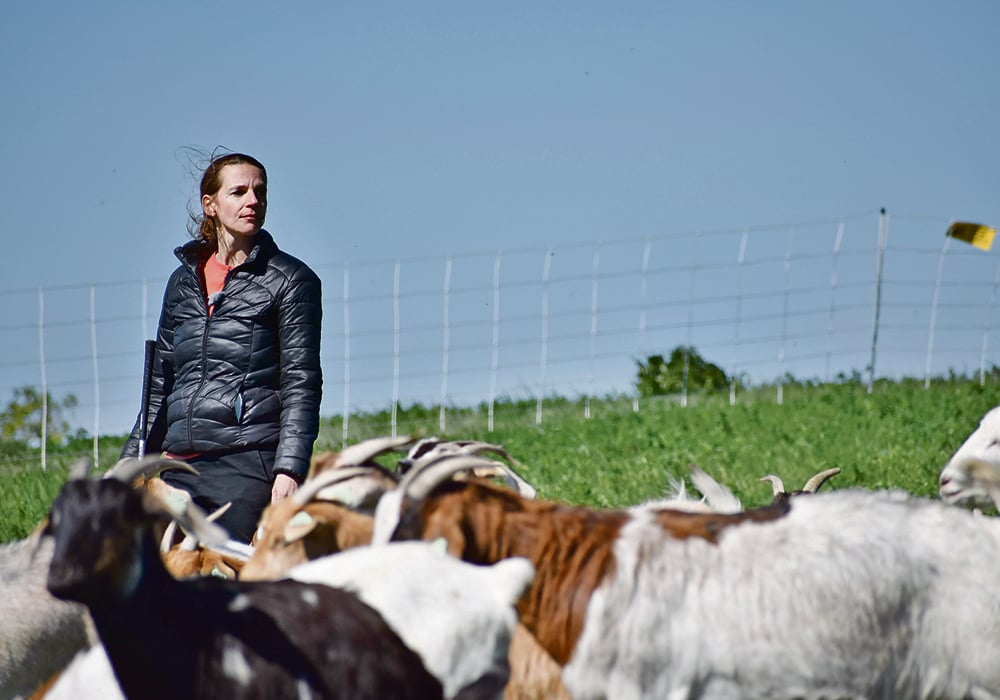Goats from Elbow, Sask., took a business trip to the big city at the start of June.
The group that promotes the Wascana Park area around the Saskatchewan Legislature brought in nearly 100 goats for a weed management project at the end of May.
Each goat is expected to graze about 10 pounds of leafy spurge, absinth, common burdock and Canada thistle every day for 10 days.
“We are very excited as the Provincial Capital Commission to have the goats as a pilot project,” said Jenna Schroeder, executive director of the park management group at a media event held June 2.
Read Also

Pakistan reopens its doors to Canadian canola
Pakistan reopens its doors to Canadian canola after a three-year hiatus.
“They’re going to be nibbling and grazing through some of the invasive weeds that we have here in this area of the centre,” said Schroeder. “The whole purpose is so that we aren’t using as many chemicals and we’re being more environmentally sustainable and environmentally friendly.”
The project is a collaboration with the PCC and No Kidding Weed Management, which handles the goats when they are waiting for weed control assignments. The goal is the restoration of Wascana Hill to a native prairie grassland.
Florentine Maathius, the shepherd that handles the goats with her border collies Gibbs and Darwin, moves the goats from area to area. Each location is secured with an electrified fence, and a pen they return to at night.
“It’s a whole mix of different breeds,” said Maathius. “They are usually grazing in a big flock in Elbow in the community pasture, they have a big flock of 1,500 goats over there.
“They’re very good at grazing invasive weeds…. What they do is they pick up the shrubs and eat the flowers so the plants won’t go to seed and won’t spread.”
Schroeder said the PCC has attempted to use sheep in the past, but it was before she assumed her position. Maathius said goats are better for a project like this because they tend to eat the weeds first while sheep will eat the grass.
“There’s no pesticides, no noise,” said Maathius. “I wouldn’t say it’s carbon friendly per se, I haven’t fact checked that but it’s way more sustainable.”
As well, having a flock of adorable farm animals in the city attracts attention to the cause. During the media event, a school group walking through Wascana made sure to stop and see the goats.
“It’s a double function, it’s fun and effective…. We think we’re going to get a lot of traffic here,” said Maathius.















